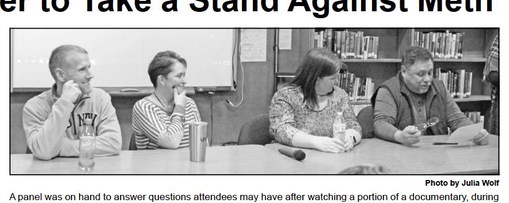Working together to Take a Stand Against Meth


Community members filled the Cornell High School library, Dec. 11, to learn about methamphetamine use and share ideas of how to stop the widespread problem. The gathering was part...


Community members filled the Cornell High School library, Dec. 11, to learn about methamphetamine use and share ideas of how to stop the widespread problem. The gathering was part...